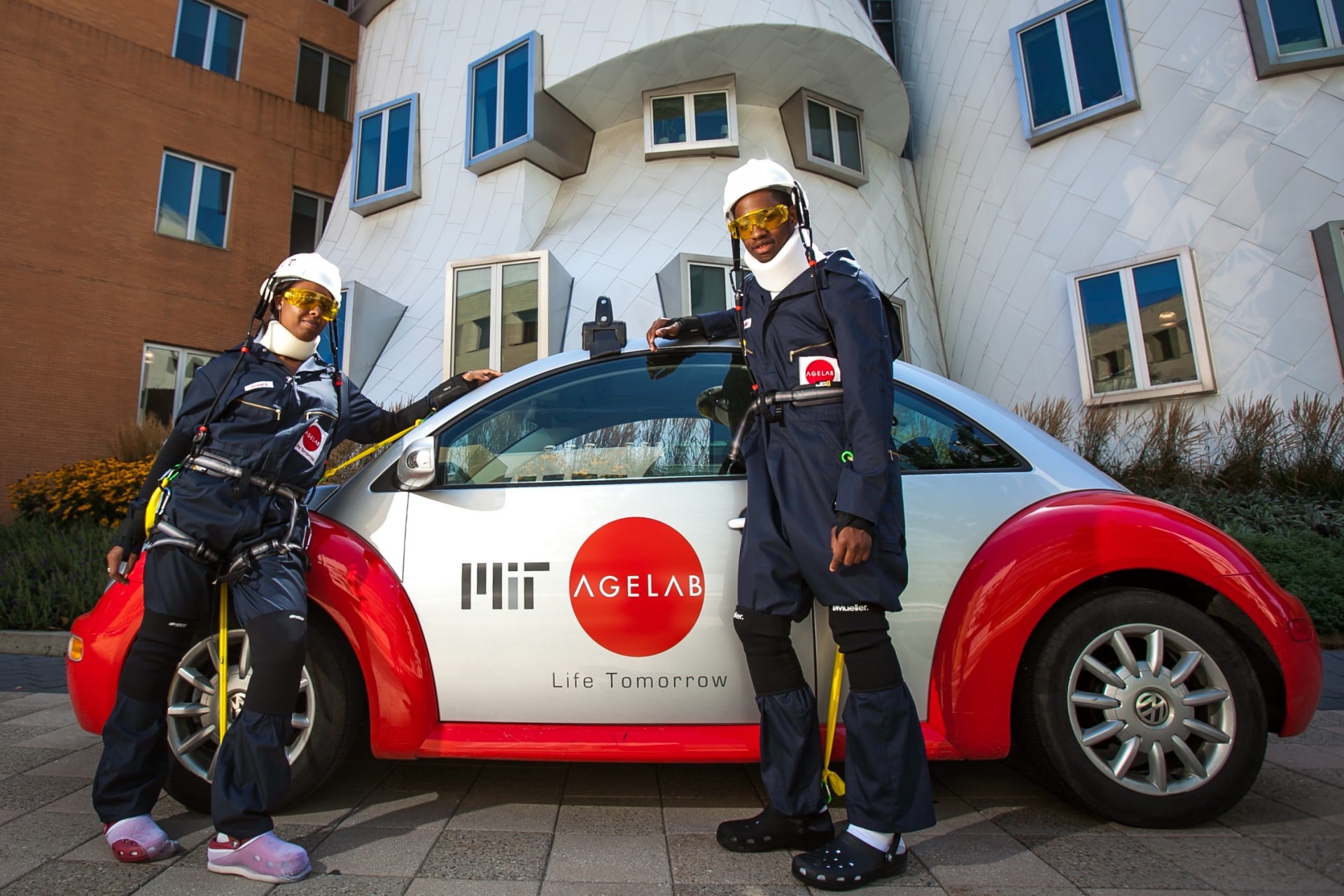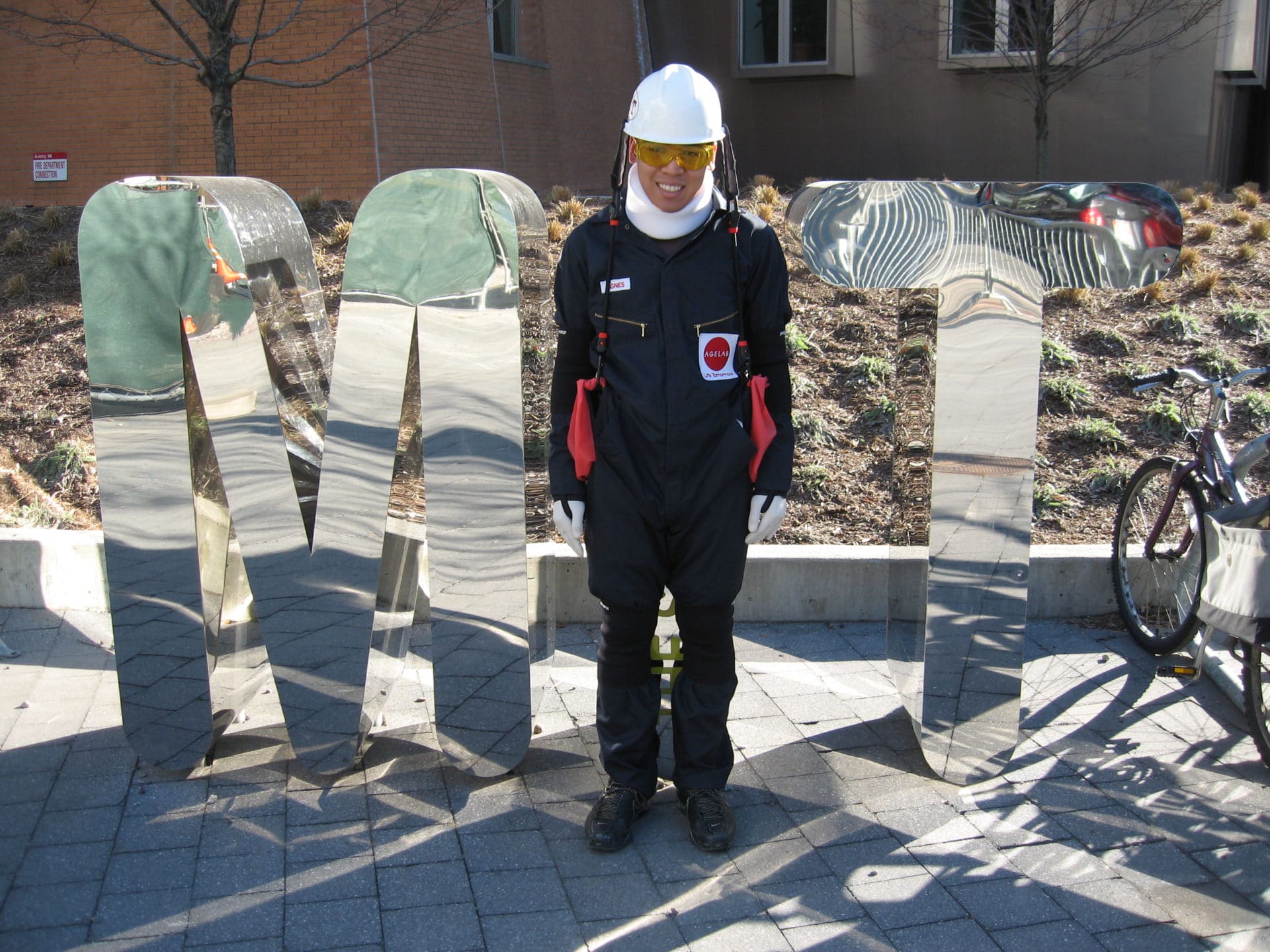United States (Cambridge)
Imagine going from 30 to 80 years old in ten minutes by slipping on an age simulation suit and going about your regular activities for a day.
You’d soon become aware of how the world can be incompatible with, and inaccessible to, older people.
In 2020, for the first time in history, old people will outnumber young people across the globe. That’s a challenge for society on a scale that has never been seen before. As a result, ageing technology research is now in the vanguard of innovative design. A more empathetic world would be transformational for the physical and emotional wellbeing of an ageing population.
MIT AgeLab is a research programme that believes that by experiencing a specific problem, there is better understanding – and ultimately better design. Their AGNES body suit (an acronym for ‘Age Gain Now Empathy System’) is not a perfect representation of what it feels like to be late-70s or early 80s, but an empathy experience tool to help researchers or designers see the world differently. The simulator allows users, from students to engineers to people who are designing products, services and spaces – whether commercial, home or public spaces – to wear the suit and understand what it feels like to age.
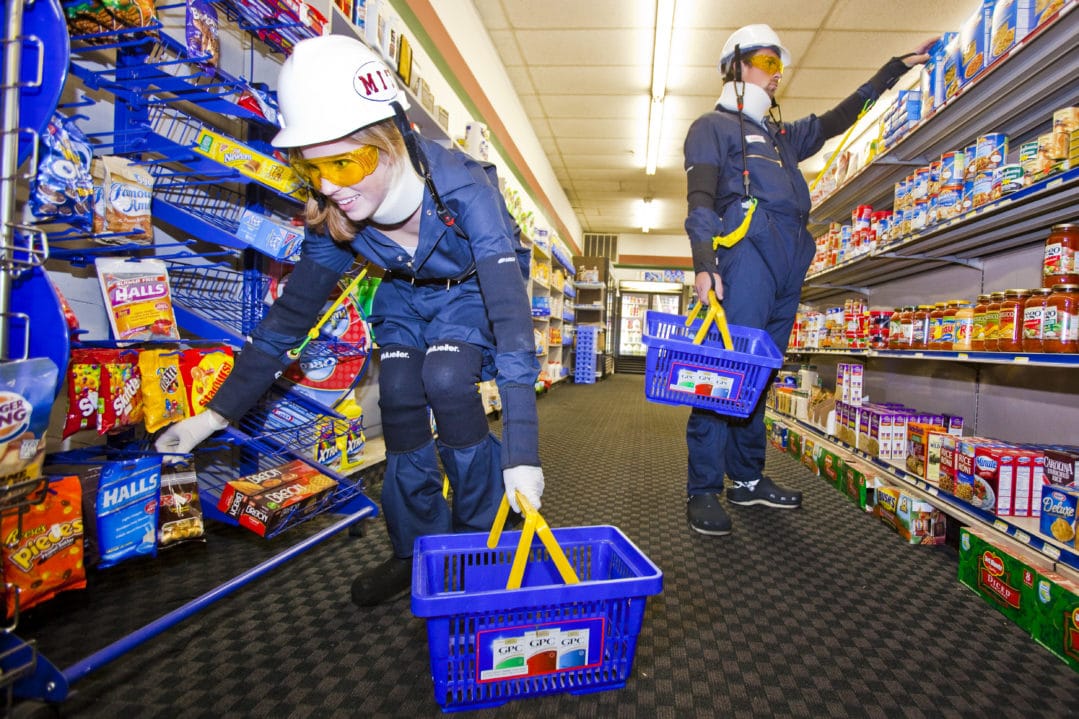
AGNES makes everything harder: bands connect the arm and waist to make it harder to reach above shoulder height; a neck brace causing the turning of one’s head to be a full torso movement; yellow glasses make it difficult to see; earplugs simulate difficulty with sounds and tones; custom shoes cause imbalance, and gloves simulate reduced tactile sensation and strength.
Often people who are designing or making decisions about space make changes that, even if they have older adults in mind, could have made use of an empathy experience. Take the example of a pharmacy chain looking to update their store design. By working with AgeLab researchers, executives from a pharmacy chain wore the AGNES suit and were able to update the store layout; widening aisles and making a clear path through the store, and lowering or raising particular products or shelves.
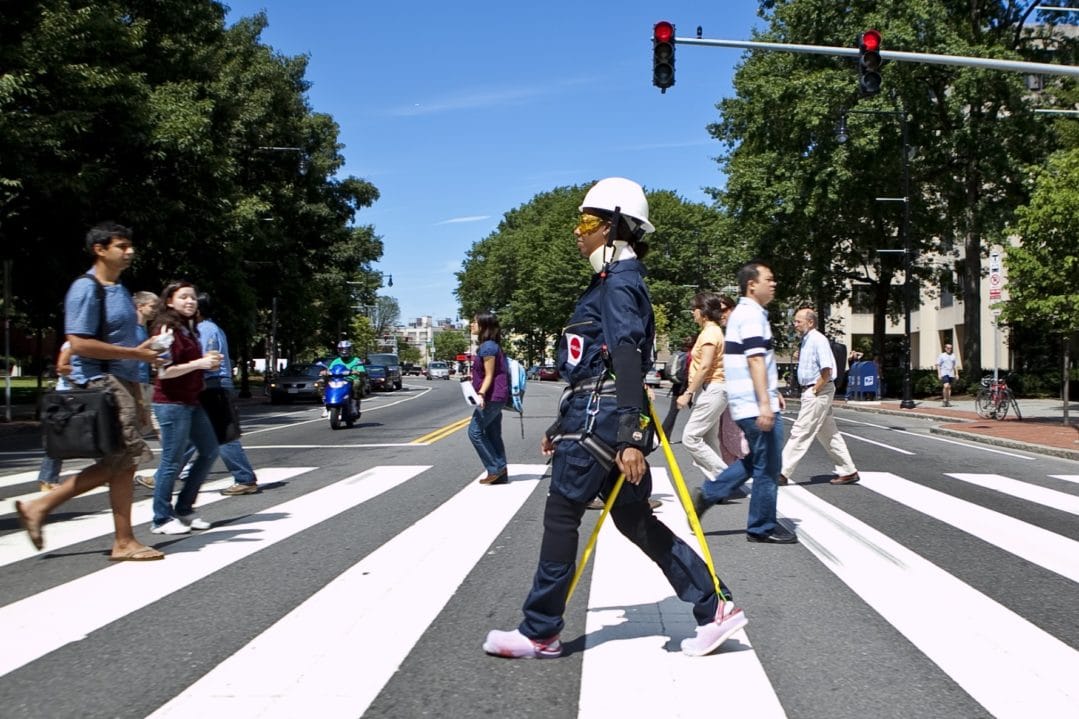
“Because ageing happens gradually, older adults often have created a work-around to solve problems, in order to remain independent and accomplish the tasks they have always done – that means that in research, people don’t always report what is difficult or challenging. Using the suit in conjunction with other research, such as focus groups or walk-throughs with older adults, helps with this,” the MIT AgeLab research specialist Samantha Brady tells us. “When we have the designers wearing the suit do walk-throughs with local older adults, we can compare the experiences and see if there are smaller changes that can be made from a design perspective that improve accessibility.”
There are four AGNES suits currently in use – ‘she’ was originally developed by an occupational therapist and other researchers at the AgeLab. There is a lot of demand from people to rent or purchase the suit, but the AgeLab team want to use AGNES first and foremost as a research tool, and do public outreach and community programmes. “We’ve brought her to do training at an assisted living facility for employees and we’ve trained Harvard Medical School students who are interested in working with older adults – they understand the biology but the empathy experience is really eye-opening for them.”
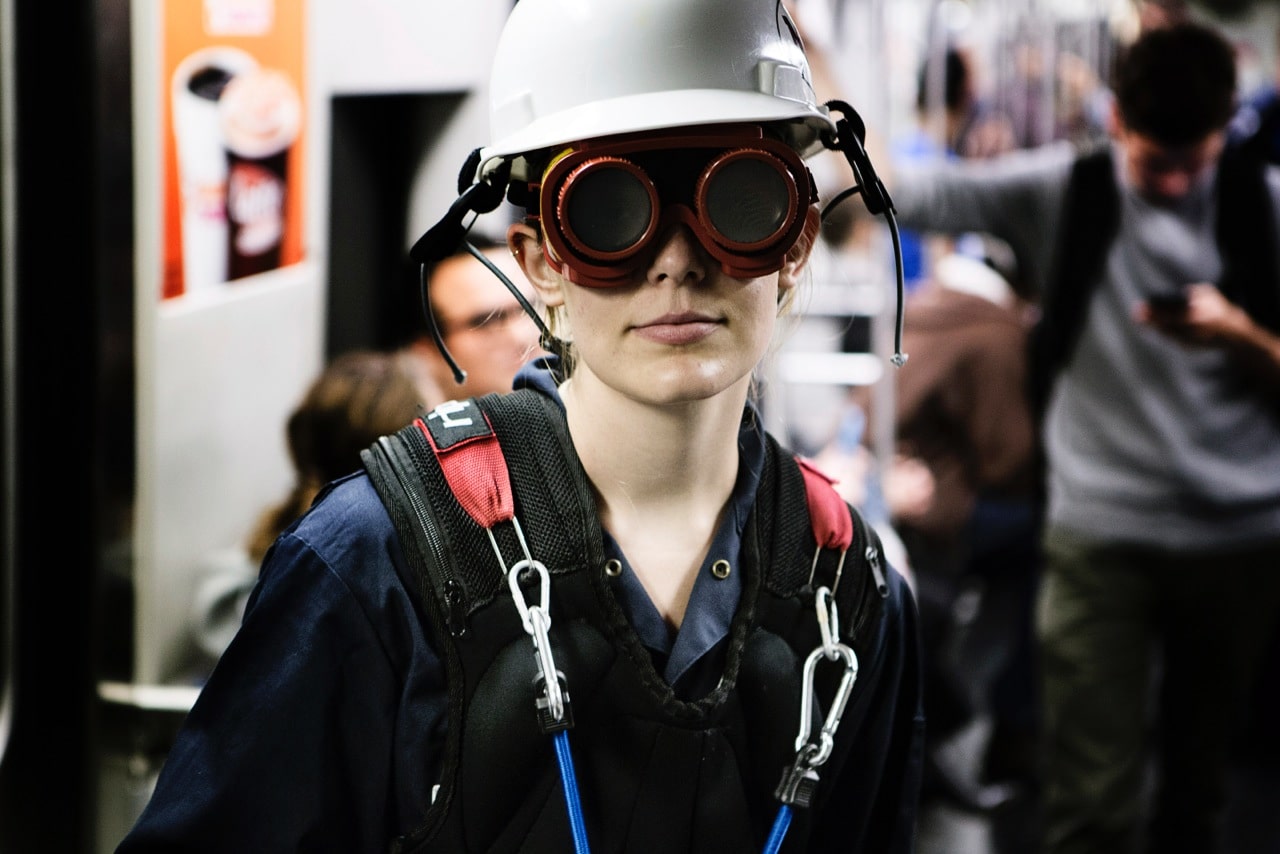
AGNES is also currently being used to evaluate different public transportation systems around the US – and has been used for the first transportation assessment in London. That work is being done in conjunction with designers and architects who wear the AGNES suit to check how accessible these transport systems and places really are.
Other work happening at the AgeLab explores how people across generations understand and use different technologies – and how they can be used for care-giving or mobility solutions.
“We have a research consortium that is looking at the home as a platform for different products and services (IoT, sensors, sharing economy service, etc), so that older adults can age in place independently,” Chaiwoo Lee, a research scientist at the MIT AgeLab, explains. “There are so many things you can attach to your home, but integration and accessibility is a challenge. We’re looking at universal design and applications for different age groups, not just for older adults and caregivers, as part of this connected home project.”
Designers today are working on a plethora of innovations for older people; from glasses with facial recognition and name prompts, to smart houses for healthy ageing at home to robot carers. The AGNES suit strives to understand the needs of an ageing population, and with it enable the design of the future to be intuitive, useful and accessible.
Watch ► The ‘Try Guys’ wear the suit for 24 hours, in a world first:
AtlasAction: Register here to participate in AgeLab research studies to improve the quality of life across the lifespan.
Project leader
Joseph F Coughlin, Director, MIT AgeLab
Partners
This project has been selected as part of AgeFutures, a new storytelling project that maps the innovations transforming the lives of older people, and the designers, entrepreneurs and community leaders – across all generations – behind them. Atlas of the Future is excited to partner with Independent Age.
Support the Atlas
We want the Atlas of the Future media platform and our event to be available to everybody, everywhere for free – always. Fancy helping us spread stories of hope and optimism to create a better tomorrow? For those able, we'd be grateful for any donation.
- Please support the Atlas here
- Thank you!
